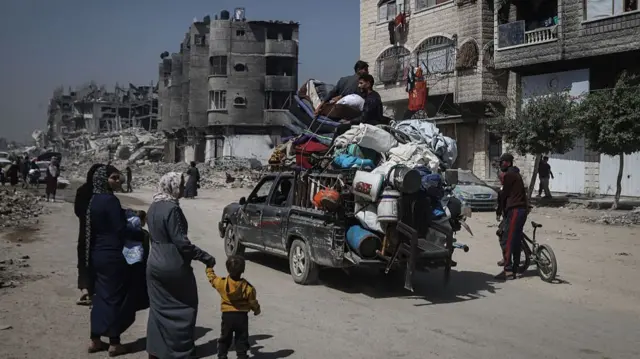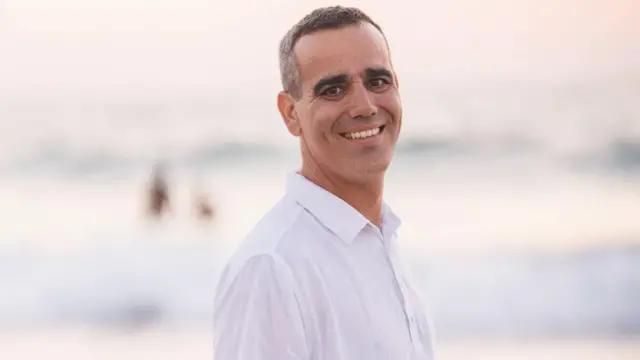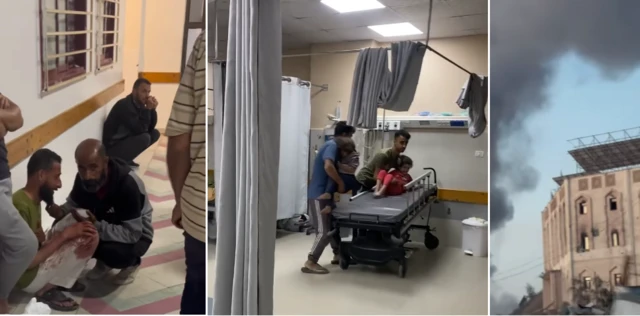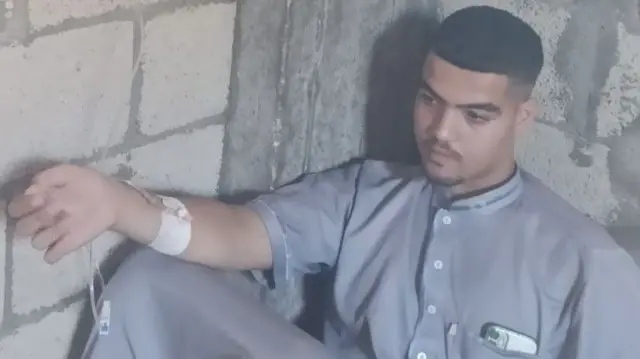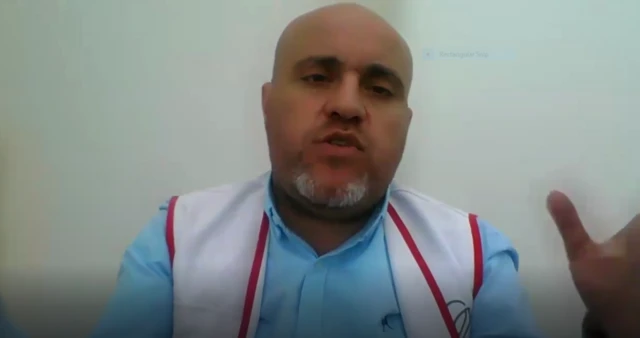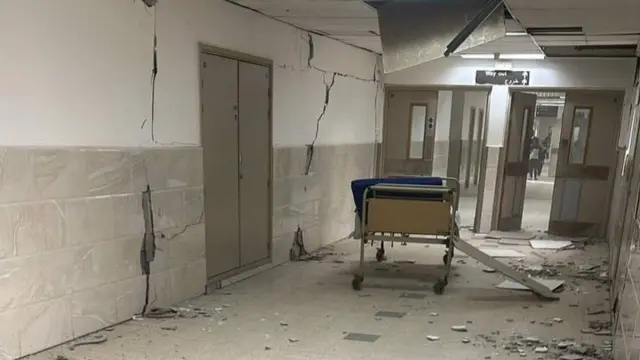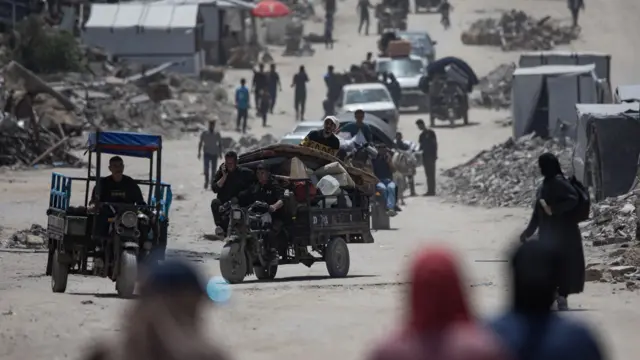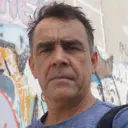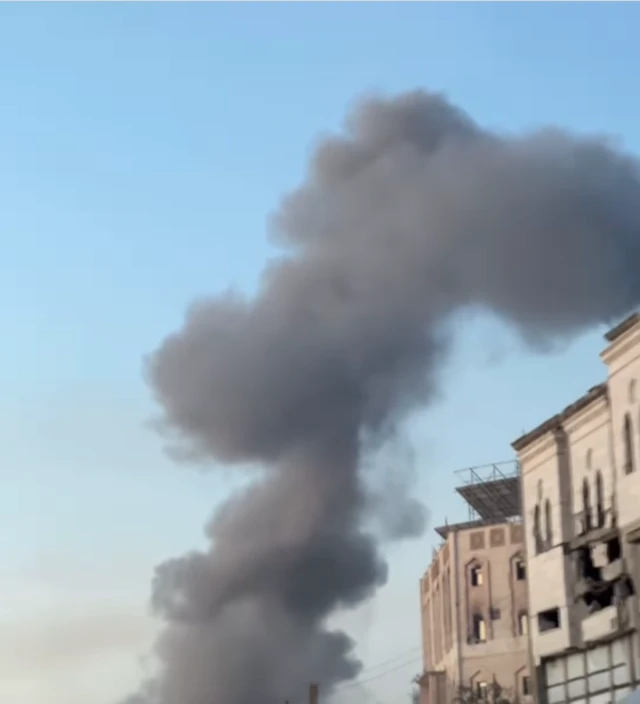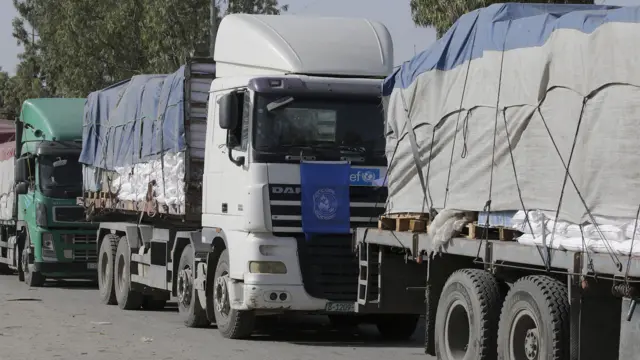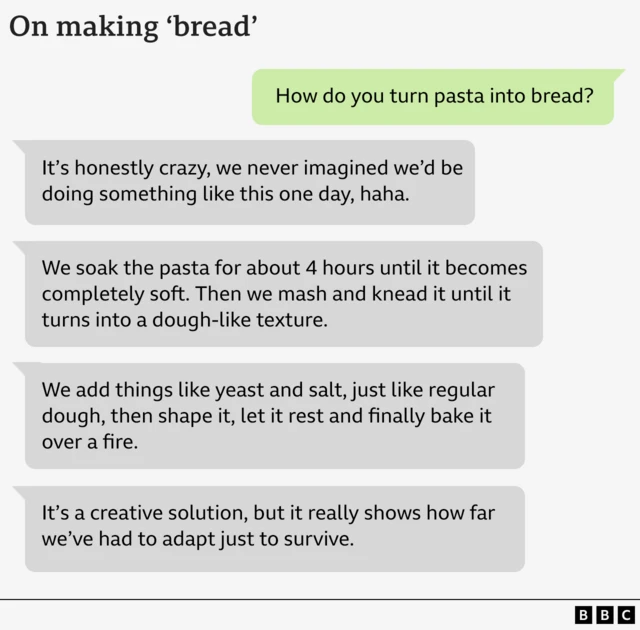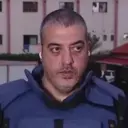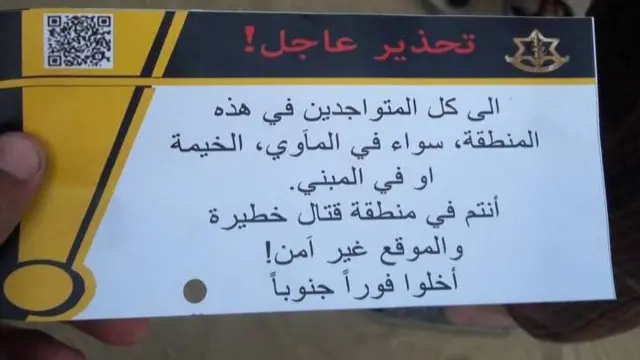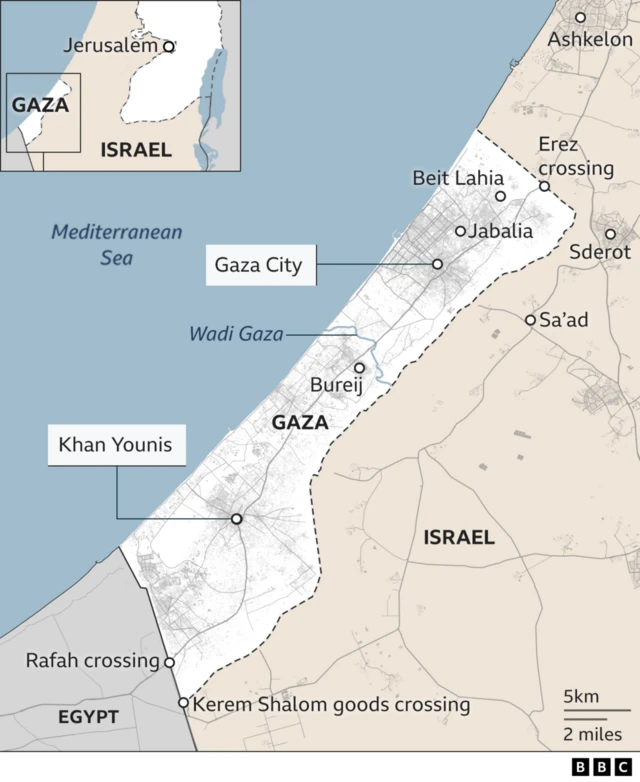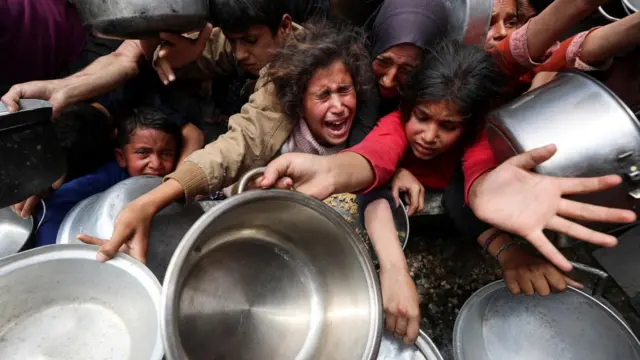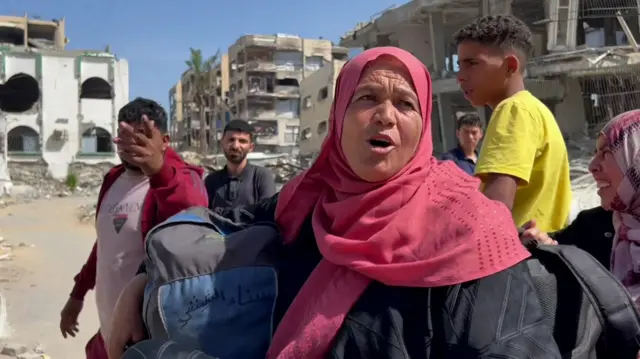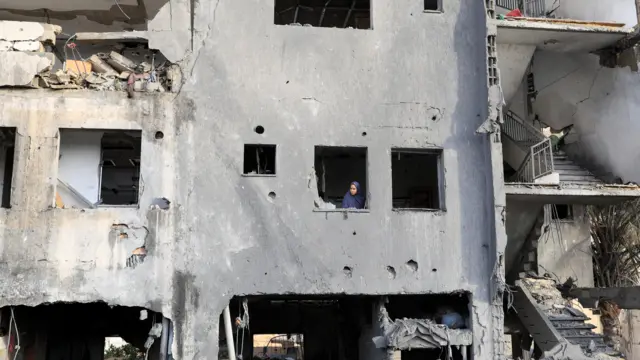People across Gaza tell us of their struggles and fears as Doha negotiations stagnatepublished at 17:52 BST 16 May
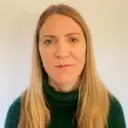 Alice Cuddy
Alice Cuddy
Reporting from Jerusalem
For the past two days we’ve been bringing you live coverage from Gaza and hearing from people across the territory about the impact of Israeli military action, the 10-week blockade and continued displacement.
A large-scale Israeli ground, air and sea attack killed dozens of people in the north of the Gaza Strip overnight, according to residents and the Hamas-run civil defence agency. The Israeli military said it was striking “terror targets”.
People we’ve been speaking to across Gaza have been telling us of their ongoing struggles to find food and fuel amid the blockade, their exhaustion at being repeatedly displaced, and their fears for the future.
“With each displacement life becomes more tragic than before,” one man said.
US President Donald Trump finished his Middle East trip today, and Israel is looking to intensify its operations, having pledged to indefinitely reoccupy Gaza if a temporary ceasefire wasn’t reached by the time he left.
At this stage, there is no sign of a breakthrough in the negotiations in Doha.
We are closing this live page for today. For more stories on the war in Gaza:
- Latest updates: Nearly 100 people killed in Israeli attack on north Gaza, rescuers say
- On the international stage: US 'troubled' by humanitarian situation in Gaza, Rubio tells BBC
- From BBC Verify: Israeli 'bunker buster' bombs used in Gaza hospital strike, experts say
- Watch: UK surgeon shares footage from Gaza hospital after deadly Israeli strike
